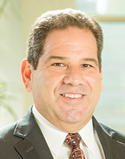PLEASE NOTE: THE COMMENTS IN THIS ARTICLE MAY REQUIRE MODIFICATION DUE TO THE FAST MOVING EVENTS IN REGARD TO THE COVID-19 OUTBREAK. NEW DIRECTIVES AND ORDERS ARE BEING ISSUED ON THE FEDERAL, STATE AND LOCAL LEVEL DAILY. PLEASE CONISDER THE MOST RECENTLY AVAILABLE INFORMATION WHEN REVIEWING THE BELOW ARTICLE.
PLEASE CONTACT YOUR ASSOCIATION ATTORNEY IN REGARD TO ACTIONS TAKEN IN REGARD TO AN ASSOCIATION’S EMERGENCY POWERS AND OTHER ACTIONS IN THE INTERESTS OF THE HEALTH, SAFETY AND WELFARE OF ASSOCIATION RESIDENTS.
Our society is facing a unique threat from the SARS-CoV-2, better known as the Covid-19 outbreak, and community associations are on the forefront. Community association boards are questioning what they can do, what they should do, and what can’t they do. The Condominium Act, Cooperative Act, and Homeowners’ Association Act provides certain emergency powers under certain conditions (see Sections 718.1265, 719.128, and 720.316, Florida Statutes). The President, Governor and multiple local municipalities have issued emergency declarations, so there is no question that a state of emergency exists. While the community association emergency powers were created in anticipation of a hurricane, many of the emergency powers apply to an infectious disease outbreak and the Director of the Division of Condominiums, Timeshares, and Mobile Homes has confirmed that Boards may utilize their statutory emergency powers pursuant to the Governor’s Emergency Orders.
The emergency powers allow meetings with reduced noticed and allow notice by any practicable manner, including publication, radio, United States mail, the Internet, public service announcements, and conspicuous posting on the condominium property or any other means the board deems reasonable under the circumstances. Additionally, an association may cancel or reschedule any meeting, name non-directors as assistant officers who shall have the same authority as the officers during the state of emergency. Associations may levy a special assessment without an owner vote. Based upon the advice of emergency management officials, an association may determine any portion of the property is unavailable for entry or occupancy by unit owners, family members, tenants, guests, agents, or invitees to protect the health, safety, or welfare of such persons. However, the association may not restrict owners from their units or parcels.
In the event of an infectious disease outbreak, nearly everyone has heard the term “social distancing,” but how does that term relate to the operation of a community association? Associations should take proactive measures to limit the gathering of large groups of people. Associations should cancel meetings unless the meeting is required to take emergency action, and then to the extent possible, attendance by the board and membership should be made available through telephone or teleconferencing. If the community association must conduct an election, the board should allow and encourage electronic voting. To the extent that physical ballots are necessary, the board should make remote viewing of the counting available by live video feed if possible. Large gatherings can be further limited by canceling social events, including common element or area rentals by owners who conduct social gatherings, and closing common area recreational facilities such and a clubhouse, community gym, and community dining. Elections or meetings may be held outdoors to limit the number of persons in a particular room and to facilitate social distancing.
Your association must consider the health and welfare of its staff and employees. The association should consider granting employees additional emergency paid time off. While not required to grant such paid time off, unless required by contract, the association should weigh the potential cost verse the risk of a sick employee showing up for work out of fear of missing pay. In light of the risk-reward, many associations may find the additional cost well worth the benefit and peace of mind provided to the whole community. Your association should seek to limit physical contact not only between the residents but also the residents and the staff. The association should consider closing the management office and requiring appointments with the manager and conducting appointments by via telephone or teleconferencing whenever possible.
It is likely associations cannot prohibit owners and their guests from visiting or occupying a unit or parcel, although, you should consult with your attorney regarding what limits can be placed on guests or visitors. Your association can implement specific procedures and limit the number of persons in a common areas or elevators, providing hand washing or hand sanitizer stations in high traffic areas. The association should also consider suspending or postponing optional maintenance or repairs to limit the number of persons visiting the property. The association may also place reasonable restrictions on the owner’s contractors. The board should analyze its current situation to evaluate what measures are necessary to protect persons at the property and continually reevaluate its measures to determine the needs of the community. The association can work with its attorney to determine how best to implement rules and procedures to accomplish the association’s needs.
Keeping your property clean is important during normal times but is imperative during an infectious disease outbreak. The Center for Disease Control and the Florida Department of Health has published recommendations for cleaning and disinfecting common facilities, and your association should consult those resources. Your Association should continually review recommendations by the Centers for Diseases Control and the Florida Department of Health.
What Do I do If An Infected Person Resides Or Has Visited My Community?
A major infectious disease outbreak, such as Covid-19, has not occurred since the adoption of the community association concept, so associations are navigating uncharted waters. If the association becomes aware that an infected person resides or has visited the property, the association will ask, do we tell the residents, and do we disclose the name of the infected person. While there is no guidance from the Division, Florida Statutes, or case law, an association should make its residents aware of the infection so that its residents may exercise caution. However, the association should not disclose the identity of the infected person without that persons written approval. While an association may be concerned that persons in contact with the infected person may need to know as to allow themselves to take appropriate measures, your association should be cognizant that disclosing the identity of the infected person may lead to stigmatizing that person or other negative consequences. If your association becomes aware of an infected resident, the association should notify the Florida Department of Health, or other relevant government authority, to apprise it of the situation. The association should heed the advice and instruction of the Florida Department of Health or other government authority. Discuss any situations regarding cases of the virus in your association with your association attorney.
Infectious diseases and its fallout is a novel challenge for Florida community associations. Your association should keep itself apprised of best practices and advice disseminated from the Florida Department of Health, Centers for Disease Control, or other pertinent authority. Additionally, Becker maintains a free website to aggregate information relevant to Covid-19 at https://beckerlawyers.com/covid-19/ I encourage all community associations to visit the website for the latest information and developments for Covid-19 information relating to the community association. As you have heard many times keep WASHING YOUR HANDS!
Howard J. Perl, Esq.
Shareholder, Becker
Fort Lauderdale | bio




